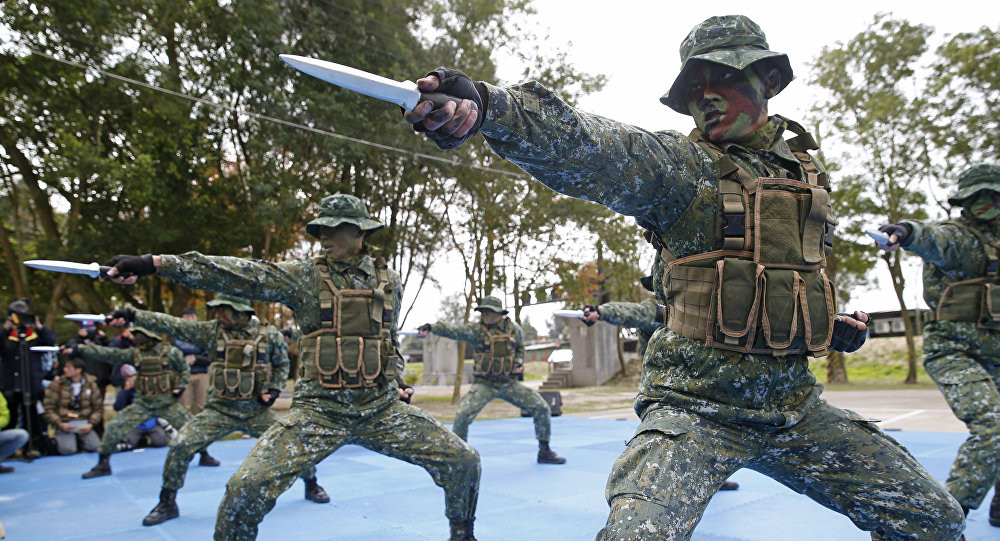New cause may increase tension in US-China relations
According to Taiwanese military sources, the South China Morning Post (Hong Kong) reported that since 2018, regular meetings between representatives of the defense industry of Taiwan and the United States will be held alternately in the United States and Taiwan.
 |
| Taiwanese military personnel |
The number of meetings has also increased - as it was planned that such meetings would be held twice a year. How could this decision affect Sino-US relations and the situation in the region? Andrei Karneev, Deputy Director of the Institute of Asian and African Studies, commented on this in an interview with Sputnik.
For the past 16 years, annual meetings on the most important issues of US-Taiwan military cooperation have been held exclusively on US soil. They have done so to avoid angering China. If the new schedule is approved, it could affect cross-strait relations and Sino-US relations. Beijing could react harshly to changes in the order and venue of the meetings, seeing them as a gross interference in the “one China” policy and a sign of strengthening defense cooperation between Taiwan and the US.
Obviously, Taipei and Washington will try to play down the possible negative impact of these changes. They will probably emphasize that the location of the meetings – Taiwan or the United States – is not the most important issue and has nothing to do with the nature of cooperation in the defense field.
However, while relations between Beijing and the Taiwanese government have become quite cold, any sign of even the slightest development of US-Taiwan military relations causes concern among the Chinese leadership.
The Trump administration has so far approved a package of military equipment for sale to Taiwan. In total, the United States intends to sign seven contracts worth about $1.4 billion. The United States will provide the buyer with missile attack early warning radars, interceptor missiles, torpedoes, and components for guided missiles. This batch of weapons does not compare with the large contracts announced by Barack Obama at the beginning of his first term as president. At that time, a contract to modernize the electronic systems on Taiwan's F-16 fighter jets alone was worth $5.3 billion. The Obama administration has also decided to provide Taiwan with 60 UH-60M Black Hawk multi-purpose helicopters worth up to $3.1 billion and 114 Patriot PAC-3 missile defense systems (worth $2.8 billion).
However, even if the US administration provides Taiwan with significantly smaller arms, it is still important symbolically. With these efforts, the US sends a signal not only to Beijing and Taipei, but also to its allies in the region. As the situation in the South China Sea becomes more tense, the US is paying more attention to maintaining its policy towards Taiwan. In this way, the US sends an important signal to its allies in the Asia-Pacific region. While doubts about the US's ability to ensure regional security are growing, Washington must convince its allies that "the US does not abandon its friends". And Taiwan, with its long-standing military ties with the US, is a good example. In the short term, the US will continue to play the role of Taiwan's security guarantor. While the US's ability to contain China is decreasing, it seeks to emphasize the US role in meeting Taiwan's military needs.
